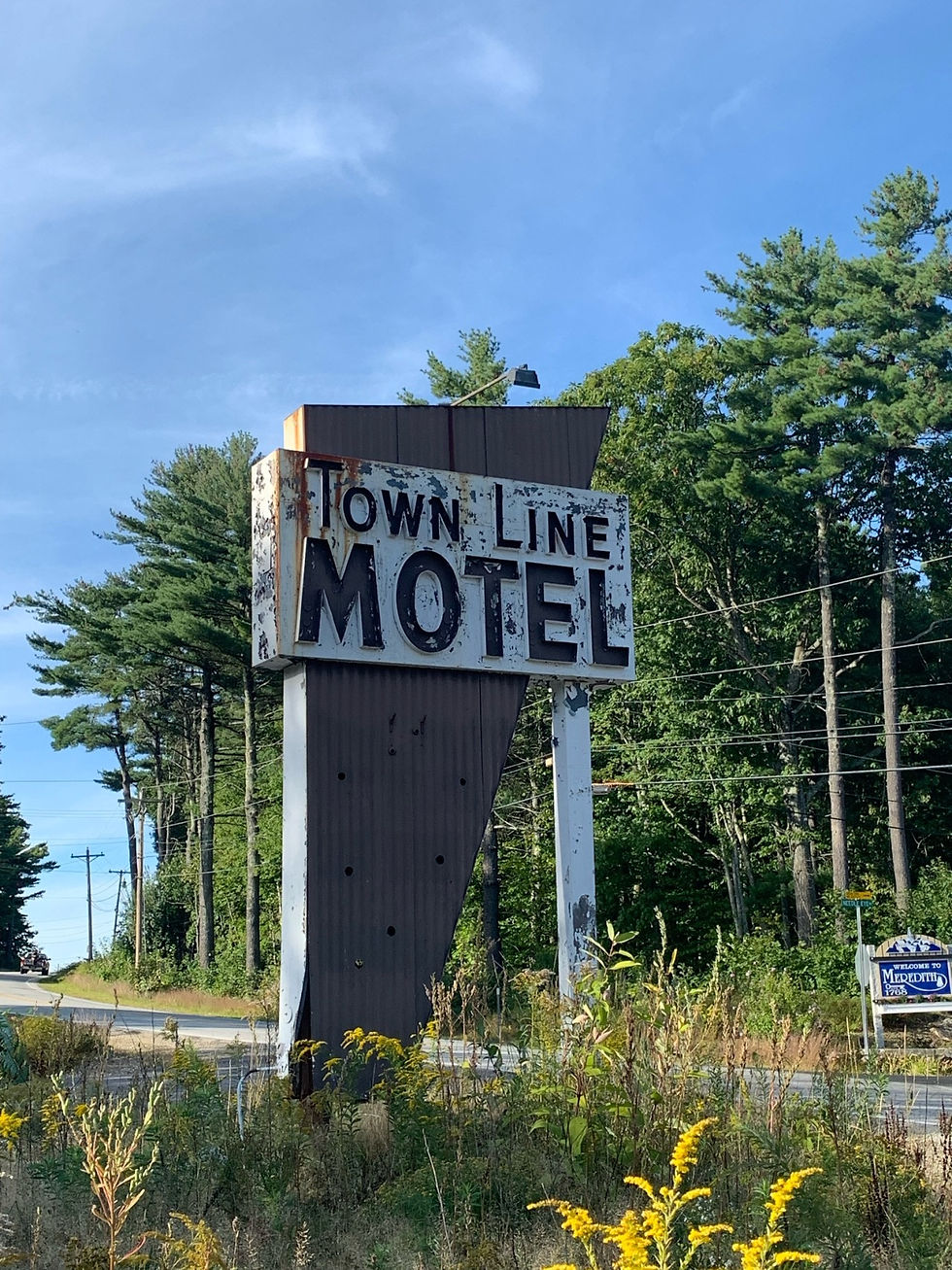"Caves and Waterfalls," short story excerpt
- Jul 3, 2022
- 3 min read
Sunday 7/3/22
We didn't have a lot of money when I was growing up, but every summer we'd still go on vacation. They weren't what you’d call flamboyant holidays, with razzle-dazzle and fireworks, though we were known to wave sparklers we’d eagerly purchased along with a half dozen ears of corn at one of those stands that often await you—though each registers as a surprise—around the bends of furrowed roadways in northern New England. The elderly couple manning them—and it’s always an elderly couple—makes you wonder how many more years they have left out there, but they didn’t seem too concerned, which is reassuring, and I bet you could find them in a decade hence.
My friends went to Disney World and came back with photos of boisterous breakfasts alongside Mickey and Donald, their smiles freighting a greater sunny-side up quotient than the eggs on their plates, whereas our traveling quartet—me, my brother, mom, dad—toured the slope-shouldered mountains of New Hampshire by day, and piled into the single room of our motel at night. My mom and me slept in one bed, and the boys slept in the other. There was always an ice machine outside in the brisker-than-you’d-expect summer air, growling like it had missed its calling as a glacier. The parking lot inevitably featured a larger-than-life-sized woodsman or peg-leg captain—no matter how far inland we were—carved out of a tower of wood by a local artisan who I imagined was recruited because of the number of ribbons she’d won over the years at Fourth of July fairs.
A lot of the places we went during our days were free—what you call the woods, in other words. Tasked with answering correctly or else being launched into eternal hellfire, I would have said that, yes, my dad knew every single cave and waterfall yet discovered in that part—whatever our latest part was—of New Hampshire. They were sure to feature in his vast collection of Granite State maps for the ecological tourist. The maps imposed a form of navigational order on the unkempt land, but the wondrous and unpredictable held sway, too. I’d feel like Rip Van Winkle was as likely to be revealed under a rock ledge as a porcupine, never mind that he was a New Yorker, and took no official, dilatory dozes in these kelp-colored hills, unless he, too, had set off for a cheap holiday not far from home.
The caves and waterfalls were as old as the land, or they must have been pretty close, but they had resonance as history, in the same way that people have histories, or the carronade on the village green with its lichen-encrusted plaque whose sole objective in this life is to let you know that the British were repelled in the last few desperate, meager minutes before noon, long ago.
There were tales of men who’d hid in the caves, stashed gold no one had ever found. An eighteenth century lepidopterist discovered a species of butterfly that lived solely within thirty yards of a particular waterfall. That was the purlieu of its world. I didn’t know whether to envy or pity that butterfly. On the one hand—wing—there was everywhere it didn’t go; but then again, there was everything it must have known so well.
The butterflies only lived for a couple temperate weeks, but trips like ours teach you it’s the rare animal—or person—that can make you understand what a misleading word “only” can be. We also went to amusement parks like Santa's Village and Story Land. Creaky amusement parks, where you began to feel sorry for the staff—a girl who’d just graduated high school and couldn’t wait to leave for college, this being her third summer at the same place, like her sister before her. But you also knew she’d be disabused of her bluster, and on an unseasonably warm September afternoon further north in Bangor, she’d find herself missing the sound of the remembered squeaky rides, and the blotches of rust that returned every year despite the efforts of her strong hands and who knows how many economy-sized boxes of steel wool.
Those were the splurge days—there might be one of them each year, and it was but one park every year. The parks stayed with me, though, despite that abundant creakiness, just as each forest stood apart from the last. There was no blurring of the past when I looked back. Our stays weren't shot-through with magic—though I’d later discover otherwise—like what I figured featured as the hypnotic, coruscating norm at Disney World, but if you could leave somewhere with a fistful of intangibles, it was those vacations. I was conscious of an abundance for which I had no ready name, or evidence dashed-off in an autograph book by a man in a Goofy suit. But sometimes we only first put a finger to things a long time later.





Comments